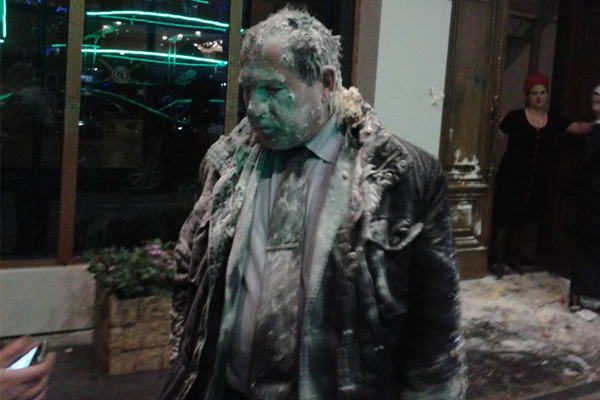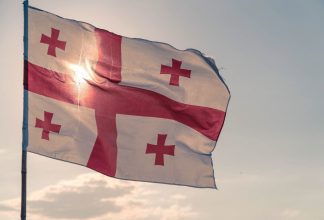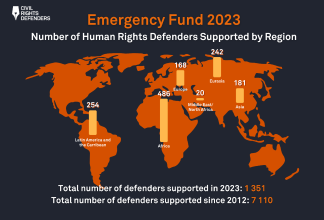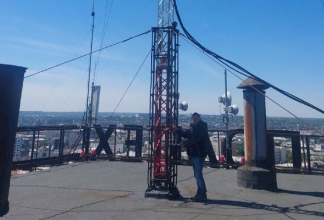Multi-Front War Against Human Rights Organisations in Russia

Today, Civil Rights Defenders launches the report Never Give Up Human Rights Defenders Keep Swimming Under The Ice which highlights the situation for human rights defenders in Russia. The adoption of repressive laws and state propaganda disrupt civil society’s efforts to promote and protect human rights.
The situation for human rights organisations in Russia is becoming increasingly difficult. The Russian regime, led by President Vladimir Putin, has introduced a number of laws that, among other things, prevent foreign funders from donating money to civil society. At the same time, a well-orchestrated propaganda campaign in the Russian media aims to blacken the name of human rights defenders, who are portrayed as spies among the Russian public. In addition, attacks from Internet trolls have since many years become commonplace for Russian human rights organisations. The effect is a much narrower space for action and diminished financial resources for the defence of the human rights of Russian citizens and others.
Russia has ratified international human rights legislation and thereby agreed to protect people’s freedom of association and other fundamental rights. Civil Rights Defenders’ report clearly shows that Russia is not living up to the standards that the country has undertaken to uphold. To counter such criticism, the Russian state has established government-controlled organisations, so-called GONGOs. The aim is to mislead the outside world and create the illusion that the state allows independent organisations to work on social issues. In reality, the state controls these organisations and the issues they work with.
Financial Hardship for Many Human Rights Organisations
An effective way for the Russian state to drive out human rights organisations in Russia is to cut their funding. Fines and staggering administrative costs put additional pressure on the human rights organisations.
“There is a great need for long-term financial support to local and international organisations that defend human rights in Russia. The reduced financial resources mean that many organisations are fighting for their survival and are forced to conduct their work on a voluntary basis. However, there are many organisations that do much good despite scant resources,” said Joanna Kurosz, programme director for Eurasia at Civil Rights Defenders.
Security in Europe Closely Linked to the Situation in Russia
Upon the signing of the Helsinki Accords in 1975, 35 countries – the Communist States, Western Europe, Canada, and the US – acknowledged that respect for human rights is a precondition for peace and security in Europe. This principle applies today more than ever.
“Surprisingly few make the connection in today’s world, but respect for human rights in Russia is crucial if we want to create a peaceful relationship between Europe and Russia. It is therefore of utmost importance that Europe’s politicians show that Russia’s human rights violations will not be tolerated,” said Joanna Kurosz.
For more information, please contact:
Email: press@crd.org, Tel. +46 76 576 27 62
The study analyses the period 2012–2017 and is based on in-depth interviews, carried out between May and December 2017, with 36 civil society organisations working in 19 cities across Russia. The majority of these organisations have been designated foreign agents (spies in the vernacular), but have despite this continued their work. A few have closed down operations and found alternative ways of operating or abstained from foreign funding and are thus no longer considered foreign agents. The conclusions of the report are mainly based on the analysis of responses from interviewees, many of whom remain anonymous for security reasons.
Download the full report here: Never Give Up Human Rights Defenders Keep Swimming Under The Ice.


